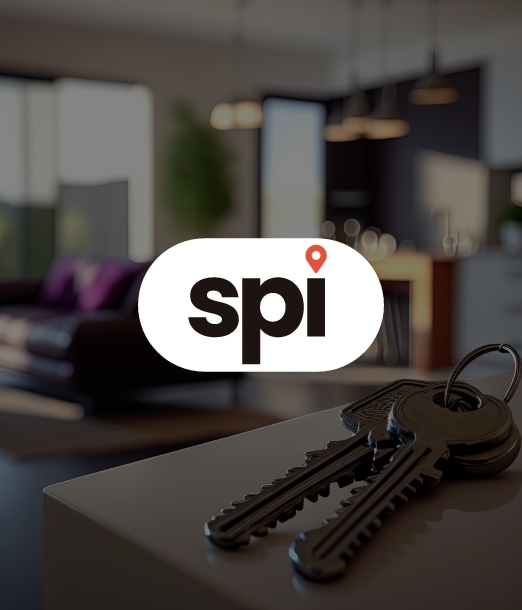5 Tips For Financing Your First Commercial Property Loan
Promoted by Mortgage Corp.
Did you know the lending process for commercial loans and home loans are the same? However, there are some financing quirks which are unique to commercial property loans...

The right commercial property can have the same, if not better, rental yields and capital returns than a residential property. However if you’re just getting started in investing in commercial property, it might be a little daunting compared to investing in residential property given it’s not as common.
In particular, you might be unsure about how financing a commercial property investment differs to a regular mortgage. Perhaps you’re wondering “What are the similarities and differences between residential and commercial loans?”
To help first time commercial property buyers navigate the commercial real estate market, Neil Carstairs, Mortgage Corp’s loan strategist and director has written this post to explain why the lending process for commercial loans and home loans are the same. However, there are some financing quirks which are unique to commercial property loans compared to residential mortgages, which investors should keep in mind.
The Commercial Lending Process
The overall commercial lending process is the same as residential property lending when it comes to applying for a commercial property loan. Lenders will consider key criteria such as:
- Your capacity to repay – all of your income including expected rental income from the commercial property
- Your deposit and any available equity
- The type of commercial property – whether it’s a factory, office, warehouse or shop-front and its location, together with a valuer’s report.
- Details of the commercial property lease and conditions.
How much you can borrow on a commercial loan will also depend on the same primary lending factors including:
- Your salary and wages, and other income such as rental income from existing properties
- Your available deposit and equity in any existing homes
- Valuation of the property
- Evidence of the expected use of the property. (Documents required)
5 Tips You Should Know Before Applying For A Commercial Property Loan
1. Specialised Commercial Lenders
First up, it’s important to know that whilst commercial loans may be less familiar to many people, there are actually a variety of loan options available from a range of specialised commercial lenders.
Mainstream lenders i.e. the Big 4 banks will tend to automatically move buyers of commercial property into their commercial lending products – this often means higher interest rates and more restrictive conditions than their regular residential lending.
However what many people don’t realise is that if they use a mortgage broker who understands commercial lending, they can often get access to second tier lenders which specialise in commercial lending.
9 out of 10 times these specialised lenders are more competitive on the rate offered, the length of the loan term and do not require the loan to be reviewed as often as mainstream lenders. In fact we’ve seen some loans with the same or close to residential mortgage rates, and even with annual fees waived.
2. Lower Loan-To-Value Ratios on Commercial Loan loans = Larger Deposits
Whilst residential borrowers can borrow up to 90% (or even 95%) of the value of the property (LVR) – Commercial property loans are generally capped at 70% LVR. This means that you would generally either need a larger deposit or be able to access more equity.

Mortgage Corp Client Story
We find that a lot of our clients that buy commercial properties can actually use a residential property they already own as security, to enable them to get equity or access to cash, to buy a commercial property – however it has to be structured correctly for the maximum benefit.
Whilst rare, we recently had a case where we were able to find a lender that was willing to extend a commercial property loan at 80% LVR. The client had operated his business out of the premises for the last 10 years and was offered the opportunity to buy the warehouse from the owner for $1.1 million. By showing that his business was profitable, the amount of rent he had been paying over the last 10 years, and his intention to continue to rent the property for the next 10 to 15 years, the lender approved a 15 year loan of $1 million – with a 5 years interest-only term as well.
3. Shorter Loan Terms
A typical residential property loan term is 30 years, whereas for commercial property it is generally between 15 to 20 years. The consequence of this is that borrowers will need to show a lender a greater capacity to repay, as the repayments will be higher as the principal will need to be paid down in a much shorter time frame, even if it is partly interest only. You need to show a stronger serviceability in regards to your pay slips, rental income on other properties and lease agreements, compared to the LVR you are planning to borrow and your other financial obligations.

Mortgage Corp Client Story
We helped a single-income family purchase a $480,000 commercial property to add to their property portfolio by showing their ability to service the loan at 70% LVR and over 20 years.
The couple had the following assets:
- A residential property; and
- An investment property; and
- $95,000 cash in offset account, from a previous investment property sale.
The husband worked full-time, and the wife was a full-time carer at home for their children. By taking into account:
- the husband’s salary;
- the family benefits they received for their children;
- rental income from their existing investment property; and
- $40,000 of rental income they expected to receive from their commercial property
We worked out they could afford to borrow enough to add the commercial property investment to their property portfolio.
Keep in mind that it’s also possible in some cases to review the loan in 5 or 10 years’ time, and extend the loan for another 15 years – but it all comes back to capacity to repay.
4. Different Lease Terms
There is a variety of commercial lease terms and some leases can provide benefits and incentives that can enhance an applicant’s loan application, eg, the length of lease and outgoings being paid by tenants.
Most residential leases last between 6 to 12 months. Commercial properties, on the other hand, are subject to longer term leases – ongoing 3×3 years or 5×5 years with options to extend for another 3 or 5 years. Tenants in commercial properties are also more likely to pay their own outgoings such as water, rates and land taxes. This can sometimes factor favourably into your loan application as it can evidence a greater ability to service the loan.
However the nature of the lease can vary depending on the type of commercial property. For example a retail shop front might require the landlord to provide a rental incentive such as fit outs or rent free periods in order to attract a tenant. Meanwhile a specialised warehouse may have long periods of vacancy if there is little demand. It’s important to carefully research the leases that apply to that particular commercial property to understand its net income potential and how it might affect your financing ability.
5. More Fees = More To Borrow
Commercial loans have higher valuation fees which usually need to be paid upfront. Just like when you apply for a mortgage on a residential property, a lender will need to order a valuation when you apply for a commercial property loan. Whilst residential property valuations are generally done for free, most lenders will unfortunately pass on the cost of a commercial property valuation to you.
For commercial properties under $1 million, this can cost between $800 to $1,500 – over this amount, and professional valuers will typically charge you a much higher amount depending on the lender, location of property and type of property. The reason for the higher cost is because commercial property valuation is a much more specialised process – it involves looking at the particular characteristics of the property, comparable sales in the area and understanding in detail the terms of the lease including how long it has left to run and whether there is an option to renew.
Depending also on yours and the vendor’s GST status, some sales of commercial property might attract an additional GST cost. This will also need to be factored into the amount you would need to borrow.
Mortgage Corp Client Story
We had a client who had first gone directly to a Big 4 bank for a business loan to purchase a commercial property – we were able to show him how to borrow more money and at much lower interest rate than what the Big 4 bank could offer, through our access to a variety of specialised lenders and effective loan structuring.
Overall, lenders look for the same factors as residential mortgages when deciding whether to extend a loan on a commercial property. With the correct loan structuring, investors can comfortably fit a commercial property into their property investment portfolio.
Conclusion
In summary, financing a commercial property isn’t much harder than applying for a regular mortgage, though keep in mind that:
- You will need to show a greater capacity to repay a commercial property loan given the shorter loan terms of between 15-20 years; and
- You will need a higher deposit/equity because you will generally only be able to borrow up to 70-80% of the value of the property.
- And of course, finding the right mortgage broker to give you more loan options can also make a very big difference.
What’s next
Get your finance sorted! Book a Free Loan Strategy Session with Mortgage Corp’s loan strategist Neil Carstairs and get your loan structured correctly for long term investment success!


